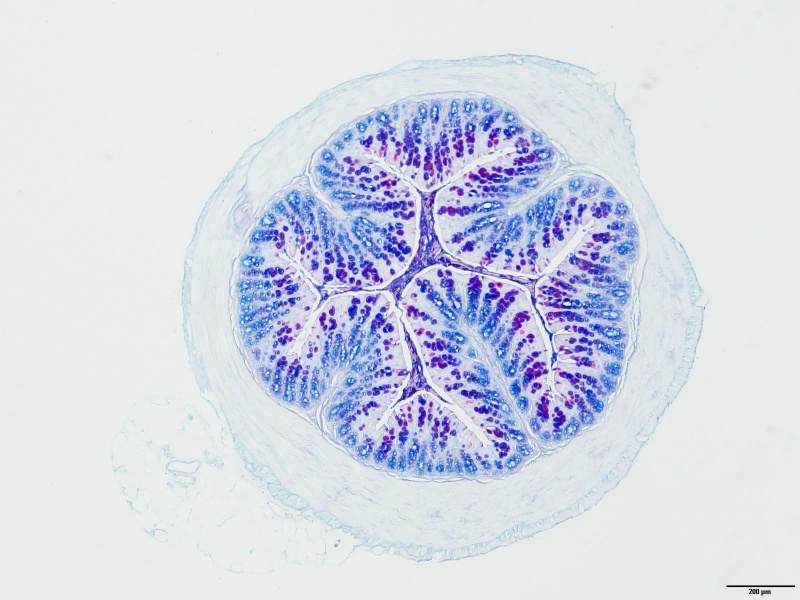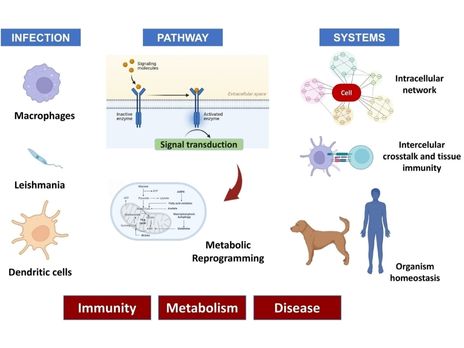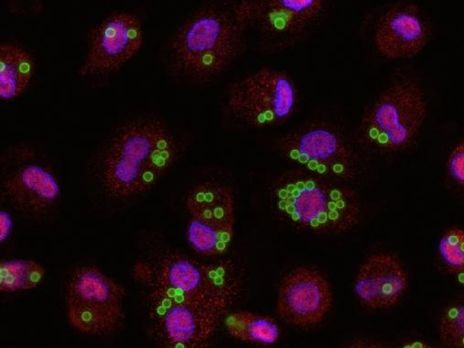Scientific Highlights
“André S, Picard M, Cezar R, Roux-Dalvai F, Alleaume-Butaux A, Soundaramourty C, Cruz AS, Mendes-Frias A, Gotti C, Leclercq M, Nicolas A, Tauzin A, Carvalho A, Capela C, Pedrosa J, Castro AG, Kundura L, Loubet P, Sotto A, Muller L, Lefrant JY, Roger C, Claret PG, Duvnjak S, Tran TA, Racine G, Zghidi-Abouzid O, Nioche P, Silvestre R, Droit A, Mammano F, Corbeau P, Estaquier J. T cell apoptosis characterizes severe Covid-19 disease. Cell Death and Differentiation. 2022 Jan 22:1-14
– Ferreira C, Estaquier J, Silvestre R.* Immune-metabolic interactions between Leishmania and macrophage host. Current Opinion in Microbiology 2021 63:231-237.
– Santa Cruz A, Mendes-Frias A, Oliveira AI, Dias L, Matos AR, Carvalho A, Capela C, Pedrosa J, Castro AG, Silvestre R. * IL-6 is a biomarker for the development of fatal SARS-CoV-2 pneumonia. Frontiers in Immunology 2021 12:613422
– Mesquita I, Ferreira C, Moreira D, Kluck GEG, Barbosa AM, Torrado E, Dinis-Oliveira RJ, Gonçalves LG, Beauparlant CJ, Droit A, Berod L, Sparwasser T, Bodhale N, Saha B, Rodrigues F, Cunha C, Carvalho A, Castro AG, Estaquier J, Silvestre R. * The Absence of HIF-1α Increases Susceptibility to Leishmania donovani Infection via Activation of BNIP3/mTOR/SREBP-1c Axis. Cell Reports 2020 Mar 24;30(12):4052-4064.e7
– Laforge M, Silvestre R, Rodrigues V, Garibal J, Campillo-Gimenez L, Mouhamad S, Monceaux V, Cumont MC, Rabezanahary H, Pruvost A, Cordeiro-da-Silva A, Hurtrel B, Silvestri G, Senik A, Estaquier J. The anticaspase inhibitor Q-VD-OPH prevents AIDS disease progression in SIV-infected rhesus macaques. Journal of Clinical Investigation 2018 128 (4): 1627-1640
– Arts RJW, Novakovic B, Horst R, Carvalho A, Bekkering S, Lachmandas E, Rodrigues F, Silvestre R, Cheng S, Wang S, Habibi E, Gonçalves LG, Mesquita I, Cunha C, Van Laarhoven A, Van de Veerdonk FL, Williams DL, Van der Meer JWM, Logie C, O’Neill LA, Dinarello CA, Riksen NP, Van Crevel R, Clish C, Notebaart RA, Joosten LAB, Stunnenberg HG, Xavier RJ, Netea MG. Glutaminolysis and fumarate accumulation integrate immunometabolic and epigenetic programs in trained immunity Cell Metabolism 2016 13;24(6):807-819
– Moreira D, Rodrigues V, Abengozar M, Rivas L, Rial E, Laforge M, Li X, Foretz M, Viollet B, Estaquier J, Cordeiro da Silva A, Silvestre R. * Leishmania infantum Modulates Host Macrophage Mitochondrial Metabolism by Hijacking the SIRT1-AMPK Axis. PLoS Pathogens 2015 Mar 4;11(3):e1004684
– Rodrigues V, Laforge M, Campillo-Gimenez L, Soundaramourty C, Correia-de-Oliveira A, Dinis-Oliveira RJ, Ouaissi A, Cordeiro-da-Silva A, Silvestre R* and Estaquier J.* Abortive T follicular helper development is associated with a defective humoral response in Leishmania infantum-infected macaques. PLoS Pathogens 2014 10(4):e1004096.
– Silvestre R., Cordeiro-da-Silva A., Santarém N., Vergnes B., Sereno D. and Ouaissi A. SIR2-deficient Leishmania infantum induces a defined IFN-gamma/IL-10 pattern that correlates with protection. Journal of Immunology. 2007, 179 (5); 3161-3170.
– Freitas-Junior LH, Hernandez-Rivas R, Ralph SA, Montiel-Condado D, Ruvalcaba-Salazar OK, Rojas-Meza AP, Mancio-Silva L, Leal-Silvestre RJ, Gontijo AM, Shorte S and Scherf A. Telomeric heterochromatin propagation and histone acetylation control mutually exclusive expression of antigenic variation genes in malaria parasites. Cell. 2005, 121(1): 25-36.”











